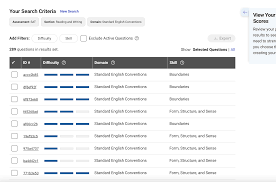Understanding the Role of College Board in Education

Introduction to College Board
The College Board is a non-profit organization that plays a crucial role in college preparation and admission processes in the United States and Canada. Established in 1900, it aims to connect students with opportunities for higher education by providing standardized assessments, scholarships, and educational resources. With a growing number of students taking Advanced Placement (AP) courses and the SAT exams, understanding College Board’s services becomes increasingly relevant for students and educators alike.
Services Offered by College Board
One of the most recognized services of the College Board is the SAT, a standardized test widely used for college admissions. In 2023, over 1.5 million students took the SAT, highlighting its importance in the admissions process for many colleges and universities across North America. The College Board also manages the AP program, which offers college-level courses and exams to high school students, allowing them to earn college credits while still in high school. In the 2022-2023 academic year, nearly 3 million students participated in AP exams, demonstrating the growing trend towards advanced placement.
Recent Developments
As part of its commitment to improving educational outcomes, the College Board has recently implemented changes to its SAT testing format, shifting to a digital version. This transition is expected to streamline the testing process and provide a more accessible platform for students. Additionally, the College Board has expanded its suite of resources to support underserved communities, aiming to close the opportunity gap in higher education. For example, partnerships with schools in under-resourced areas have been established to provide free SAT preparation resources such as Khan Academy.
Conclusion: The Significance of College Board
With its impact on college admissions, standardized testing, and academic resources, the College Board continues to shape education in significant ways. Its focus on expanding access to college readiness initiatives and enhancing assessment methods reflects a commitment to evolving with the needs of students and educators. As we look forward, the educational landscape will likely see further adaptations from the College Board, ensuring it remains a leading force in promoting equity in education and preparing the next generation for success in higher education.









